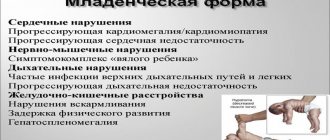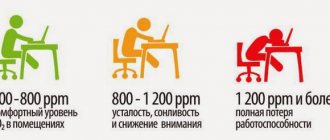Sleep and the process of falling asleep itself have always interested people. In ancient times, sleep was given a mainly mystical meaning, but in any case, doctors of the past and present agreed that a good night's sleep is the key to health for the body.
Now scientists have advanced quite far in the study of sleep as a biological process. Thanks to their research, sleep phases and the activity of brain regions at one time or another were identified. Based on the accumulated experience, such a medical science as somnology arose. It is aimed at studying sleep, the causes of various disorders and the general effect on the body.
Somnologist
Thus, a somnologist is a doctor whose job is to prevent and treat sleep disorders. The range of his activities is quite wide, but he can solve some sleep problems together with other doctors - a neurologist, an infectious disease specialist, an otolaryngologist. What problems can a somnologist help you get rid of? These are, first of all, problems that require immediate treatment. These are insomnia, apnea, snoring, restless sleep. A pediatric somnologist will help get rid of nightmares, long periods of falling asleep, and improper sleep patterns when the child confuses day with night. Treatment is not always medicinal, since the problem may be psychological, and the doctor will help correct the current situation and restore restful sleep.
Case from practice
A forty-year-old man consulted a somnologist. He complained that for 10 years he had not known what healthy sleep was. The doctor suggested that he undergo polysomnography to understand how to treat the disease. The patient agreed. Studying the condition in conditions that are as similar as possible to a home environment has always given good results.
The room is cozy and dim. It is easy to breathe, the air is fresh, but not cold. The bed has an orthopedic mattress, even the bed linen smells pleasantly fresh and homely!
The patient knew that he would be monitored by a neurologist and a somnologist. Sensors, a computer, a special program for processing specific information - everything is ready for fruitful work. Finally, a person finds out what illness has been tormenting him for many years.
The man went into the laboratory and wished everyone good night... Five minutes later, the air space of the room exploded with severe snoring with pronounced apnea. The patient did not breathe for some time, then breathing returned noisily. The problem has been found. The man could not sleep deeply with such snoring. His sleep was superficial and incomplete, so it seemed to him that he was not sleeping at all. He slept in a separate room, there was no one to tell about the problems.
Advice from a somnologist
If you or your loved ones are tormented by sleepless nights, you should make an appointment with a somnologist. This is, of course, the right decision. But before you visit your doctor, try following these recommendations.
- You need to go to bed and get up at the same time both on weekdays and on weekends.
- No need to sleep during the day. If you are used to daytime sleep, then it should be before 15:00 and no more than an hour.
- You should only go to bed at night if you feel drowsy. If there is no sleep, then you need to find a distracting activity.
- Sports and periodic physical activity promote sound sleep. Therefore, you need to do exercises in the morning and walk for at least an hour during the day.
- Rituals that accompany the departure to rest will help set you up for a sound and sweet sleep. This could be a relaxing bath, relaxing music, or reading an interesting book or magazine.
- There is no need to drink strong coffee and tea before bed, and you should avoid alcoholic beverages.
- Don't overeat before bed. But if you can’t sleep without dinner, then you can get by with a light snack: kefir, milk, vegetables or fruits.
- Sleeping pills are addictive, so you should not abuse them.
Cost of services
| Code | Medical services, name | Price |
| 9117 | Initiation of CPAP therapy | 1545.00 |
| 9116 | Partial polysomnography (rheopneumography) using the Somo-Chek device | 1545.00 |
| 9115 | Repeated appointment (consultation) with a somnologist | 999.00 |
| 9114 | Primary appointment (consultation) with a somnologist | 1382.00 |
A somnologist is a specialist involved in the prevention of healthy sleep, treatment, diagnosis and study of sleep disorders. According to statistics, about 20% of people have sleep disorders, which negatively affect well-being and performance, which, in turn, affects the quality of life, so the profession of a somnologist is still relevant in our time. A somnologist treats sleep disorders in both adults and children.
Somnology is a science that is a separate branch of neurobiology and medicine. Somnology studies sleep and its disorders, as well as how sleep affects human health. Knowing the theoretical aspects of normal human sleep, doctors in practice develop methods for treating various sleep disorders. Also, the competence of somnologists includes the development of treatment methods and the study of diseases that manifest themselves and develop during sleep. Today, there are many sleep disorders associated with chronic diseases and the general condition of the body.
To date, somnologists have identified more than 80 types of sleep disorders and about 50 diseases that cause insomnia. A complete diagnosis of the patient allows the doctor to identify the disease, find the cause of its occurrence and prescribe effective treatment.
Wake-up call
You should not postpone a visit to a somnologist if you have the following circumstances and symptoms of illness:
- cardiac hypertension and ischemia, which worsen at night;
- snore;
- taking sleeping pills for quite a long time;
- constant desire to sleep during the daytime;
- frequent falling, walking, or grinding teeth in sleep;
- stopping breathing or problems with it during sleep;
- unpleasant sensations during sleep (goosebumps, numbness or cramps in the limbs).
These are alarming symptoms.
What will the doctor do at the appointment?
During the appointment, the doctor will ask the patient about his lifestyle, personal characteristics, quantity and quality of stress experienced. All symptoms and complaints must be identified in order to establish an accurate connection between these abnormalities and disturbances in sleep quality. An assessment of the general psycho-emotional status will be carried out.
You need to tell the doctor how long sleep lasts at night, how quickly you fall asleep, and how sleep is usually interrupted. In most cases, specific examinations will be required, during which the sleeping patient is connected to fixation equipment in order to monitor sleep phases. Afterwards, the somnologist will decipher the results obtained and identify obvious violations. If the need arises, other specialized specialists, for example, a neurologist or cardiologist, will be involved in the examination to exclude organic lesions.
Diagnostics
To diagnose disorders, the somnologist uses a number of techniques in his work, some of which will be discussed in more detail.
Polysomnography is a series of tests performed while you sleep to detect sleep disturbances, examining breathing, blood pressure, heart rate, oxygen levels, brain wave patterns, eye movements, breathing muscles, and limbs.
Electroculogram (EOG) is an electrophysiological method that studies the eye muscles and the outer layer of the retina using changes in biopotentials during stimulation of the retina and eye movements.
Electrocardiogram (ECG) is an electrophysiological study and registration of electric fields that are formed during the work of the heart.
Electromyogram (EMG) is an electrophysiological study and recording of electrical muscle activity.
Dynamic pulse oximetry is a non-invasive method based on a spectroophtometric method that determines the degree of oxygen saturation in the blood.
An electroencephalogram is a recording of a complex oscillatory electrical process obtained using an electroencephalograph.
Prevention of healthy sleep
- observe a normal regime of rest and wakefulness, but do not overdo it with the duration of the first;
- you need to fall asleep immediately after the feeling of drowsiness appears;
- If within half an hour you cannot immerse yourself in the kingdom of Morpheus, then you need to get up and do a calm activity. This could be reading a book, taking a warm bath;
- stop sleeping during the day. Rest after lunch negatively affects the quality of the night;
- rest is necessary before going to bed. A warm bath, an interesting book, drawing and modeling will be excellent helpers;
- exercise during the daytime. Physical activity after six o'clock in the evening is not recommended. Light exercises are performed 4 hours before bedtime;
- dinner should be light. Drinks in the evening should be decaffeinated;
- When prescribing a sleeping pill, the dosage and duration of therapy should be observed. If medical instructions are not followed, the medication will become addictive.
Not many people know who a somnologist is. Many simply do not consider the problems of night rest to be serious. In fact, the overall condition of the body depends on the quality of sleep. Violations in it can lead to many problems. To prevent their occurrence, you need to consult a doctor in a timely manner.
The human nervous system requires night rest. During sleep, cells are energetically restored, preparing the body for full-fledged work. Violation of the natural physiological state leads to sleep problems, which are eliminated by a somnologist. It determines the pathology of the cycles of wakefulness and rest, eliminates deviations.
The science of sleep, which deals with the problems of disturbances and the processes of influence on the body of the natural sleepy physiological state, is somnology. A specialist involved in the prevention of healthy sleep is a somnologist. Many clinics do not have such a doctor: the specialty in the Russian Federation has gained popularity only in the last two decades.
Specialist in Moscow
If the above tips do not help, and sleep problems persist, then you should consult a specialist. Where can you find a somnologist in Moscow?
There are various sleep research centers and laboratories in the capital, where qualified specialists will provide the necessary assistance. Below is a list of them with contact information.
- Clinical sanatorium "Barvikha", which is located in the Odintsovo district in the Moscow region. The center has been operating in the medical field for more than 20 years, and lectures on sleep disorders are held twice a year to improve the skills of specialists.
- Institute of Cardiology named after. A. L. Myasnikova, located on 3rd Cherepovskaya, 15-a. The institute operates a sleep laboratory, the main focus of which is the treatment of apnea and arterial hypertension.
- The Federal Scientific and Clinical Center for Otorhinolaryngology is located on Volokolamsk Highway, 20, not far from the Sokol metro station. Specialists use the latest advances in medicine to treat apnea and snoring.
- National Medical and Surgical Center named after N.I. Pirogov on Nizhnyaya Pervomaiskaya, 70. The laboratory at the center has been operating since 2013 and during this time has managed to accumulate vast experience in the treatment of sleep disorders.
- Somnology service at the medical center on Zhivopisnaya, 14, building 1 (Polezhaevskaya, Shchukinskaya metro stations) and the Xenotherapy Center on Zemlyanoy Val, 64, building 2 (Taganskaya metro station). The service also provides online booking and cashless payments. During an in-person consultation, a comprehensive examination is carried out with the participation of specialists other than a somnologist.
- “SM Clinic” on Klara Zetkin Street, 33/28 offers examination of sleep disorders using German and Israeli equipment.
- University Clinical Hospitals named after. THEM. Sechenov No. 1 and No. 3, located on Bolshaya Pirogovskaya, 6, building 1 and on Rossolimo 11, building B No. 1. They operate a somnology office, the main work of which is to identify sleep disorders. No. 3 has a somnology department that provides a whole range of services.
- The Eurasian Clinic on Novy Arbat, 36/3, whose laboratory is equipped with modern somnological equipment, will help you get rid of problems associated with sleep disorders.
In addition to the capital’s clinics, sleep problems are also solved in the Moscow region. There are somnology clinics in Khimki and Kolomna.
- “Family Doctor” on Kirova Avenue, 10. Here you can undergo a comprehensive examination and receive advice from experienced specialists.
- Treatment and rehabilitation clinical center of the Ministry of Defense of the Russian Federation in Khimki, in the Planernaya microdistrict, vl. 14.
Snoring and obstructive sleep apnea
With this disease, a person regularly experiences pauses in breathing during sleep; there can be dozens or even hundreds of them during the night. Almost anyone can get sick, regardless of gender or age, but the main risk group is men over 40 years of age who are overweight. At the same time, snoring and apnea are not the same thing, although loud snoring is a typical companion and one of the most significant symptoms of sleep apnea. The fundamental difference is that ordinary snoring is just a sound that often disturbs others, but does not cause direct harm to a person, but respiratory arrest or, in medical terms, obstructive sleep apnea is a serious disease that threatens the health and even life of the patient .
When a person falls asleep, his whole body, including the walls of the throat, relaxes. Under the influence of the air flow that passes through the upper respiratory tract during sleep, their walls begin to vibrate and a characteristic sound appears - snoring. By itself it is harmless. But if the walls of the pharynx fluctuate so much that at some point they close completely, then the person cannot breathe any further and a respiratory pause occurs, called apnea.
Obstructive sleep apnea syndrome, firstly, greatly reduces the quality of sleep and, consequently, the quality of life of such patients, and secondly, it provokes dangerous diseases and can even lead to death. In order not to suffocate from apnea, a person is forced to wake up. True, he usually does not wake up completely, but goes into a state of drowsiness for a few seconds, but these moments are enough for the throat to open and the air again rushes into the lungs. The person begins to breathe, then falls back into sleep, muscle tone drops again and the pharynx closes again. Although people with sleep apnea usually don't remember waking up many times during the night in the morning, the natural consequence is that they feel groggy and drowsy during the day. And such a person does not breathe for a total of several hours a night. This causes a serious oxygen deficiency, which has a bad effect on all internal organs and, first of all, the heart and blood vessels. Chronic internal stress associated with sleep disorders is an additional release of adrenaline into the blood and an even greater load on the cardiovascular system. This means the risk of heart attack and stroke increases.
But fortunately, today there is a very effective and safe way to treat obstructive sleep apnea - CPAP therapy. The essence of this method is that before going to bed, the patient puts on a special mask made of soft plastic that covers the nose, and a special portable compressor under pressure supplies air into it through a flexible thin hose. At night, the air pumped into the respiratory tract expands the walls of the pharynx, as if a pump inflating a bicycle tire, the walls of the upper respiratory tract straighten, stop vibrating and, as a result, apnea and snoring disappear.
CPAP therapy eliminates apnea and snoring, making sleep comfortable for both the patient and his loved ones
Although simple snoring without apnea is not a disease, it can still be a serious social problem - due to severe snoring of one of the spouses, families sometimes even break up. Often, surgery to widen and strengthen the lumen of the pharynx helps get rid of the defect. You can also use special devices - so-called oral applicators or mouthguards, which are attached to the teeth at night and slightly push the lower jaw forward. This improves the patency of the pharynx and snoring often goes away.
A special breathing study, which is carried out during sleep - cardiorespiratory monitoring - will help to distinguish simply severe snoring from sleep apnea. At the same time, various breathing parameters are simultaneously recorded: air flow through the respiratory tract, snoring, chest movements and blood oxygen saturation. This allows the doctor to determine the nature and number of breathing pauses during sleep, as well as the degree of oxygen starvation caused by them, and therefore determine the optimal treatment tactics for a given patient.
Specialist in St. Petersburg
The necessary help can also be obtained after consulting a somnologist in St. Petersburg in the clinics presented below.
- St. Petersburg City Hospital on Borisova, 9, in Sestroretsk, where the Center for the Treatment of Sleep Disorders of Breathing operates.
- St. Petersburg Clinical Hospital of the Russian Academy of Sciences on Thorez Avenue, 72. There is also a Center for the Treatment of Sleep Disorders of Breathing with the possibility of outpatient and inpatient treatment.
- Polyclinic complex (medical center) on Moskovsky Prospekt, 22.
- Consultative and diagnostic center with a clinic on Morsky Prospekt, 3. Outpatient treatment is possible here.
- Center for Heart Medicine on Chernaya Rechka. There is a somnology laboratory here, where not only studies of sleep disorders and their elimination are carried out, but also full-fledged cardiological diagnostics.
In addition to specialized clinics, help from a somnologist in St. Petersburg can be obtained in the laboratory for the study and correction of respiratory disorders and the somnology department. She is located at the Department of Propaedeutics of Internal Diseases at the Military Medical Academy on Zagorodny Prospekt, 47.
The Department of Somnology is located at the International Institute of Biological Systems named after. CM. Berezina, LDC on 6th Sovetskaya, 24/26.
If you contact us in a timely manner, somnologists in St. Petersburg will provide all the necessary assistance.
Where does the sleep doctor see?
In Russia, every year there are an increasing number of specialists in the field of sleep medicine, so it is much easier to find such a doctor than, say, ten years ago. But today in our country there is no such separate medical specialization as “somnology”; doctors receive this qualification in addition to their main medical specialty - somnologist-pulmonologist, somnologist-neurologist, etc. As a result, the services of sleep doctors, unfortunately, are not included in the compulsory health insurance system, and you will most likely have to treat sleep disorders at your own expense. So, in Moscow, one night in a somnology laboratory will cost on average about 10-15 thousand rubles, depending on the status of the medical institution and the complexity of the examination required by the patient. But as a result, you will receive a qualified opinion about the state of your sleep and competent recommendations for treating the existing problem.
Specialist in Yekaterinburg
Residents in Yekaterinburg can receive help from a somnologist in the following medical institutions.
Center for restorative medicine and rehabilitation at the road clinical hospital at the Sverdlovsk-Passenger station on Nadezhdinskaya, 9A. Patients of the center have the opportunity to undergo a full comprehensive examination in the hospital and then be observed on an outpatient basis.
Sverdlovsk Regional Hospital No. 2, department of functional and ultrasound diagnostics at Rabochaya Molodyozha embankment, 3.
How to prepare for your visit
A few weeks before the appointment, the patient should start keeping a diary, where all the features of the sleep disorder are carefully entered. Because it is these nuances that will be of interest to the somnologist in the first place. In addition, the doctor must obtain information about a history of chronic and acute diseases, medications taken, and the nature of their lifestyle and work.
Immediately before taking it, you should refrain from consuming tobacco, alcohol, strong tea and coffee. Try not to eat heavy foods that can affect the quality of sleep and physiological parameters of the body.
Who is a somnologist and what does he treat?
A somnologist is a specialist who analyzes sleep phases and identifies abnormalities that can lead to various diseases. Very often, at a doctor’s appointment, a patient complains that his illness has caused deterioration in sleep, but upon in-depth study of the problem, it may turn out that, on the contrary, sleep disorders contributed to the development of the disease.
Today, the most studied diseases are the following, associated with sleep disorders:
- - Insomnia or insomnia. They manifest themselves to a certain extent in every third person. With insomnia, sleep does not disappear completely, but a significant part of it may be disrupted.
- - Hypersomnia. In contrast to insomnia, this condition is characterized by excessively long sleep, the duration of which is more than 10 hours.
- - Parasomnias. Disorders that are more or less related to sleep. These include nightmares, sleepwalking, night terrors, confusion after waking up, etc.
- — Breathing disorder during sleep. The most common of these is apnea, or temporary cessation of breathing that occurs during sleep.
- — Motor disturbances during sleep. Most often, there is erratic movement of the legs and arms, body rocking, head shaking, etc.
In addition, sleep disturbance can lead to the development of impotence and epilepsy.
Thus, sleep disorders are not at all as harmless as they might seem at first glance and can lead to a variety of diseases. A somnologist is a specialist whose tasks include identifying the connection between the problem and sleep disorders, as well as prescribing specific treatment.
How to find out about a sleep disorder
Each sleep disorder has its own clinical picture, which allows one to suspect the development of the problem. For example, with insomnia, a person cannot fall asleep for a long time (for 2-3 hours), and the rest of the sleep is superficial, with frequent awakenings. Hypersomnia is manifested by prolonged sleep and constant daytime sleepiness, up to sudden falling asleep (narcolepsy). If a person suffers from apnea, he may wake up at night and experience an attack of suffocation, severe fear, complain of loud snoring and frequent urination at night.
In addition, sleep disturbances may include frequent nightmares, teeth grinding (bruxism), and moving and talking during sleep. If you have the symptoms described above, you should contact a specialist who will help you find out the cause of these conditions.











